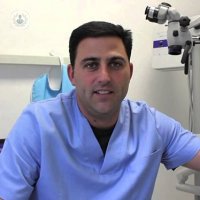What difference abscess phlegmon?
Written in association with:Both phlegmon and abscess are infectious processes caused by dental problems, usually due to dental nerve necrosis, gum health problems, gingivitis or periodontitis , mainly, or a combined process of both problems.. These so annoying or even painful problems are very common and in many cases can be prevented with a correct routine of dental hygiene. About it speaks the specialist in Dentistry Dr. Sagardía Pradera, which has extensive experience and is a member of the main associations of its specialty.
Differences between abscesses and phlegmons
The main difference between abscess and phlegmon is that in the first, the affected area is located and delimited to the area of the problem, while in phlegmon the injured party covers much more than the area of the problem and there is usually presence of pus.
Symptoms of abscesses and phlegmons
The main and common symptom in both cases is inflammation of the affected band and the presence of fistulas, more or less small size with presence or absence of pus, in the gum near the tooth or soft tissue affected.
Causes of abscesses and phlegmons
The appearance of abscesses and phlegmons can be derived from different causes: necrosis of the pulp tissue, death of the nerve of the tooth; periodontal pockets, space between the gum and the tooth that becomes deeper as the bacteria accumulate below the gum, forming subgingival plaque and, consequently, generating the destruction of the supporting bone and worsening periodontal disease. Another cause can be gingivitis and periodontitis.
Treatment of abscesses and phlegmons
Once they have appeared, it is important to consult what to do to a specialist in Dentistry and thus avoid a worsening of these pathologies. Usually, it will recommend the introduction of antibiotics or anti-inflammatories in order to eliminate the source of infection.
Sometimes, if you need to remove the pus present in the gum, the specialist will make a small cut in the abscess. If the tooth is affected, it is possible to perform a root canal to save the tooth; and in severe cases the affected tooth will be removed.

How to prevent abscesses and phlegmons
As with most oral diseases, maintaining correct oral hygiene will prevent infections and the development of certain problems. In addition, you should perform at least one check-up once a year at your dental center to try to prevent small lesions in a short period of time from becoming large lesions causing pulpal lesions and, as a consequence, abscesses and phlegmon.
.


